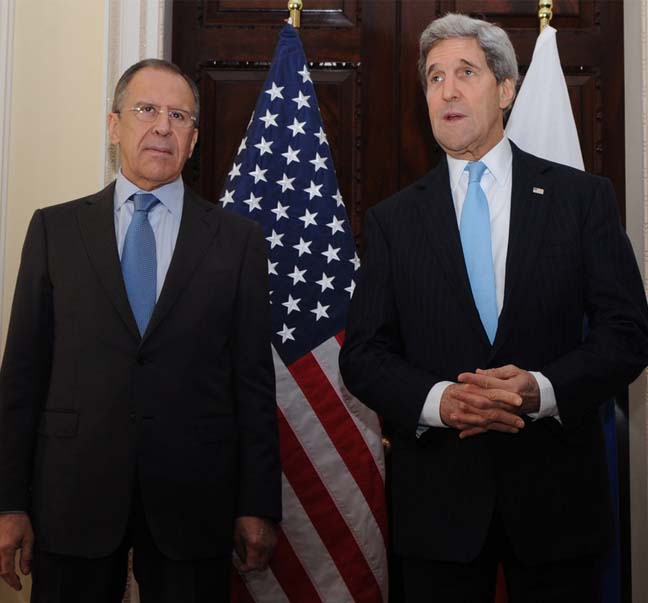Counterpunch writer Jack Rasmus has published an analysis of the agreement signed by the Ukraine government and the International Monetary fund several days ago. That country’s economic fortunes will come under ever stricter control of the banksters of Europe and the United States. Many Ukrainians wishing for closer ties to Europe will re-examine their aspirations in the harsh light of day.
Rasmus begins his article, titled ‘Ukraine’s IMF deal’, with:
On March 27, 2014, the IMF released the broad outlines of its terms and conditions for loans and other measures for the Ukrainian economy. What those terms and conditions mean is less a rescue of the Ukrainian economy than the onset of a Greece-like economic depression for the Ukrainian populace…
The ‘IMF Standby Agreement with Ukraine’ text released on March 27 acknowledges the current, severe economic instability of the Ukrainian economy. What it fails to acknowledge, however, is how the IMF package will further adversely impact that economy.
Meanwhile, extensive talks between the governments of Russia and the United States are continuing over events in Crimea. The two governments  are seeking some agreement to contain the political and economic upheavals of recent months.
are seeking some agreement to contain the political and economic upheavals of recent months.
Beginning last year, mass political protests in Ukraine against an unpopular national government led to its overthrow. During the protests, rightist and fascist forces intervened aggressively. Their political support and influence among Ukraine’s economic elite and middle class rose to the point where they have representatives in the new, pro-Europe government.
The U.S. and Europe intervened to their advantage in the chaotic conditions, including to further their long-standing efforts to weaken and isolate Russia in Europe and the world. Since the collapse of the Soviet Union, and in violation of promises made to post-Soviet Russia at the time, NATO member countries have aggressively enticed neighbour countries of Russia to join their military alliance.
Russia intervened in Crimea in order to push back the political offensive by its big power rivals and to counter the rising influence of the far-right in Ukraine.
British writer Tariq Ali has authored a commentary in the UK daily The Guardian that is a useful reminder that Russia’s government is no friend of the national minorities and oppressed nations along its western and southern borders, including Ukrainians and the Tatar and other peoples of Crimea.
Ali also reminds his readers of the hypocrisy of the NATO countries, including their quiet backing of Russia’s brutal war against the people of Chechnya during the 1990s. He writes:
… Tony Wood’s book, ‘Chechnya: The Case for Independence’, provides chapter and verse of what the horrors that were inflicted on that country. Chechnya had enjoyed de facto independence from 1991-94. Its people had observed the speed with which the Baltic republics had been allowed independence and wanted the same for themselves.
Instead they were bombarded. Grozny, the capital, was virtually reduced to dust as 85 percent of its housing was destroyed. In February 1995, two courageous Russian economists, Andrey Illarionov and Boris Lvin, published a text in Moscow News arguing in favour of Chechen independence. The paper (unlike its Western counterparts) also published some excellent critical reports that revealed atrocities on a huge scale, eclipsing the siege of Sarajevo and the massacre in Srebrenica. Rape, torture, homeless refugees and tens of thousands dead was the fate of the Chechens. No problem here for Washington and its EU allies.
Another informative and necessary reminder of NATO’s intentions in Ukraine is provided by Chris Nineham, writing in the UK publication Counterfire. He argues the importance of recognizing that the key foreign aggressor in Ukraine is NATO and that those who live in NATO member-countries have an overriding obligation to expose and condemn that aggression.
The news that the U.S. and Russia are meeting and talking intensively to try and reach a diplomatic solution to the conflict over Ukraine and Crimea should be no surprise. Notwithstanding historic conflict and competing interests between the elites of the two countries, they have a shared interest in ‘stabilizing’ the situation for the sake of their mutual capitalist interests. For all its bluster over Crimea, the U.S. is hard-pressed to make a case of massive rights violations there, certainly in comparison to its conduct in Serbia and Kosovo 20 years ago, in Iraq and Afghanistan for the past 12 years, and more recently in Libya and north Africa.
The globalized world of capitalist trade and investment and the rising rebellions of peoples against the capitalist system places limitations on how capitalist nation states and elites can resolve competition and conflicts that arise among them. That’s why talk of ‘war’ erupting in Ukraine or along the Ukraine-Russia border wildly mis-estimated the global situation.
In the case of Canada’s hawkish prime minister, he stands exposed as a sideline loudmouth. All his bluster that a new version of the Cold War is upon us is wishful thinking, designed for domestic political consumption and to boost Canada’s petro industries. Too bad for him that visions of replacing Russian gas to Europe with climate-destroying Alberta’s tar sands extraction and liquified natural gas projects-to-come are for naught.
My March 20, 2014 article, ‘What stand for socialists on events in Crimea and Ukraine?’ is here.



